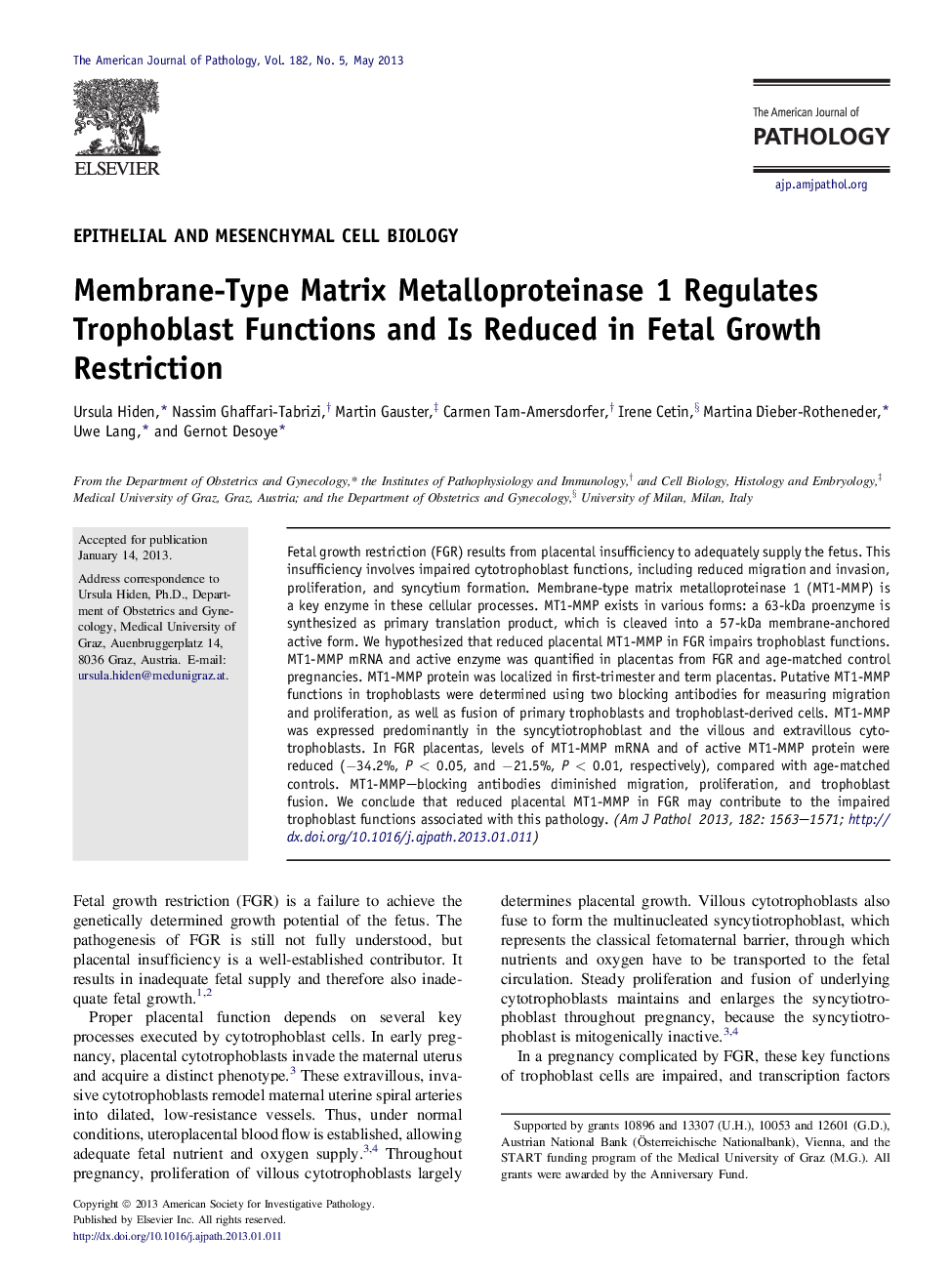| Article ID | Journal | Published Year | Pages | File Type |
|---|---|---|---|---|
| 5934270 | The American Journal of Pathology | 2013 | 9 Pages |
Fetal growth restriction (FGR) results from placental insufficiency to adequately supply the fetus. This insufficiency involves impaired cytotrophoblast functions, including reduced migration and invasion, proliferation, and syncytium formation. Membrane-type matrix metalloproteinase 1 (MT1-MMP) is a key enzyme in these cellular processes. MT1-MMP exists in various forms: a 63-kDa proenzyme is synthesized as primary translation product, which is cleaved into a 57-kDa membrane-anchored active form. We hypothesized that reduced placental MT1-MMP in FGR impairs trophoblast functions. MT1-MMP mRNA and active enzyme was quantified in placentas from FGR and age-matched control pregnancies. MT1-MMP protein was localized in first-trimester and term placentas. Putative MT1-MMP functions in trophoblasts were determined using two blocking antibodies for measuring migration and proliferation, as well as fusion of primary trophoblasts and trophoblast-derived cells. MT1-MMP was expressed predominantly in the syncytiotrophoblast and the villous and extravillous cytotrophoblasts. In FGR placentas, levels of MT1-MMP mRNA and of active MT1-MMP protein were reduced (â34.2%, P < 0.05, and â21.5%, P < 0.01, respectively), compared with age-matched controls. MT1-MMP-blocking antibodies diminished migration, proliferation, and trophoblast fusion. We conclude that reduced placental MT1-MMP in FGR may contribute to the impaired trophoblast functions associated with this pathology.
